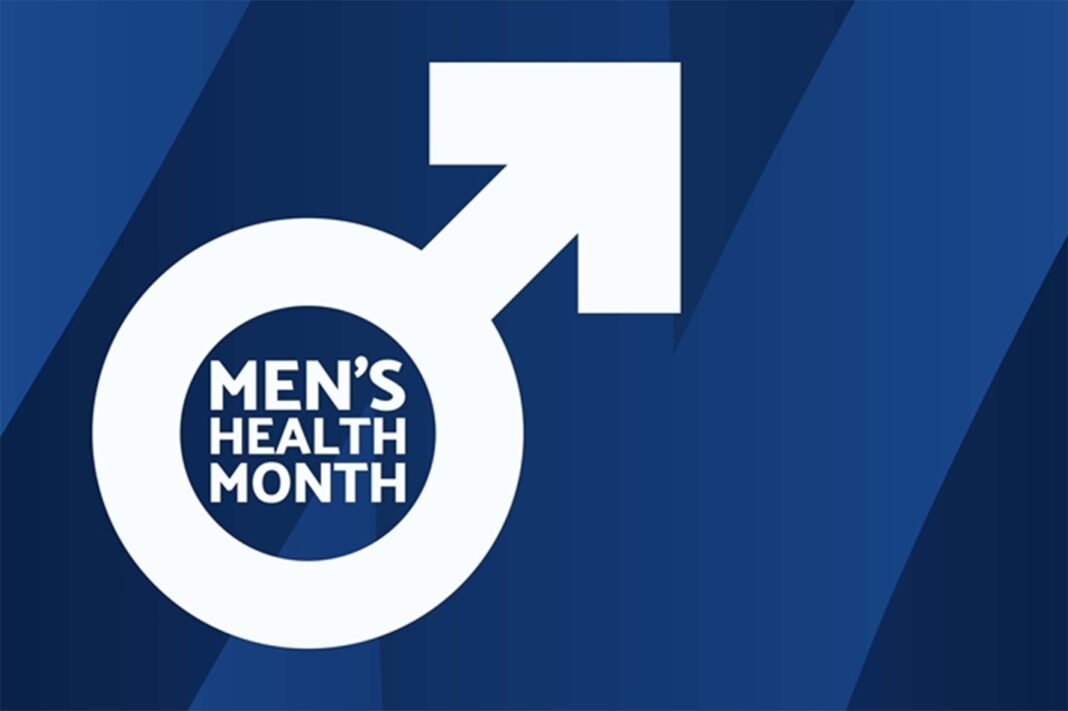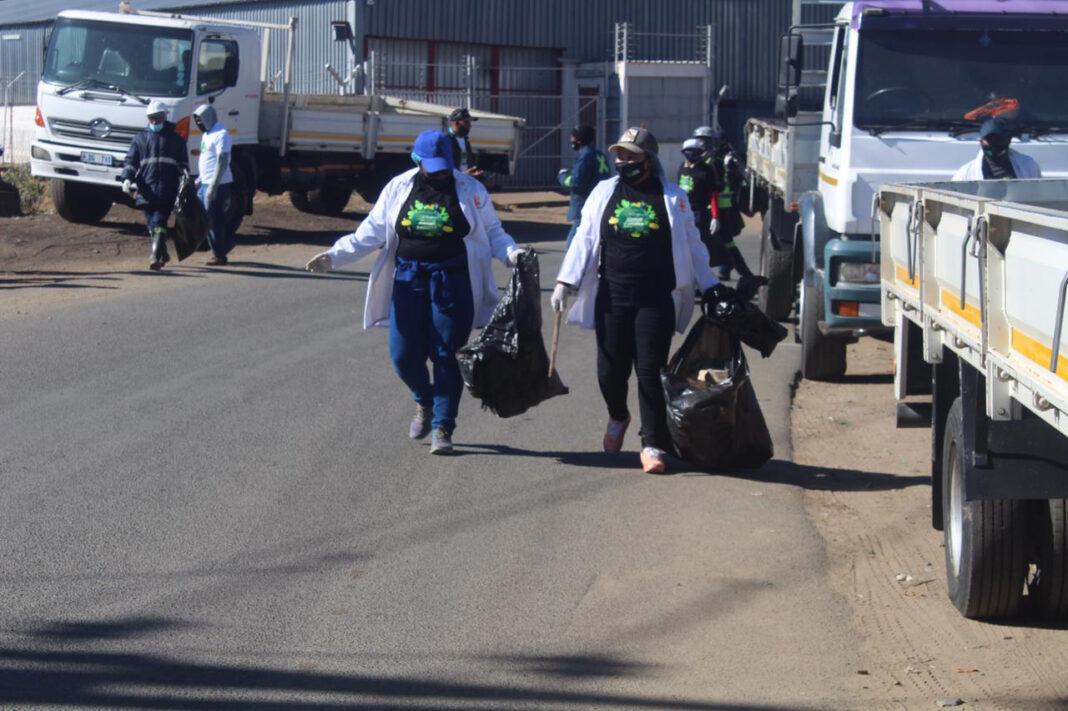By Neo Kolane
June is Men’s Health Month, a national observance used to raise awareness about health care for men and focus on encouraging boys, men and their families to practice and implement healthy living practices such as exercising and eating healthy.
Men’s health refers to a state of complete physical, mental, and social well-being, as experienced by men and not merely the absence of disease or infirmity.
Equity in health has been a cornerstone of Jhpiego’s work since 2008.
Jhpiego is an international non-profit health organization affiliated with Johns Hopkins University. For 35 years, Jhpiego has empowered front-line health workers by designing and implementing effective, low-cost, hands-on solutions to strengthen the delivery of health care services for women and their families.
According to Jhpiego, more than 122,000 Basotho have learned their HIV status through Jhpiego-led initiatives, and over 210,000 men have received voluntary medical male circumcision services, thereby benefiting from this procedure’s protective effect against HIV infection.
Jhpiego pioneered the first-ever integrated, comprehensive, nurse-led male clinic, which received over 18,000 patient visits in the first two years. The clinic, which provides client-centered, male-friendly health services and improves male health-seeking behaviors, has been endorsed by the ministry of health. It is being replicated at 13 primary health care clinics
A new survey highlights the negative attitude many men have about seeking medical care.
Nearly two-thirds of respondents said they avoid going to the doctor as long as possible, and 37 percent said they preferred not to divulge any of their medical information.
Experts say this is an ongoing issue that keeps doctors from detecting life-threatening issues early, resulting in bigger health dangers and sometimes death.
According to Elizabeth Glaser Pediatric AIDS Foundation (EGPAF), adult males are less likely to be reached by provider-initiated and community-based HIV testing approaches (widely used in Lesotho). Health facilities customarily operate during normal hours and service providers are mostly female.
A majority of middle-aged and mobile men rarely visit clinics and are not usually home at the time of community-based testing campaigns. Culturally, some Basotho men do not feel comfortable being in the same waiting room with women and children.
Even when sick, men often delay to seek medical attention. Men are less likely to utilize traditional facility-based HIV and health services and have thus not benefited as greatly from the Treatment for All policy now in place in the country, compromising Lesotho’s ability to reach 90-90-90 targets and furthering the HIV epidemic in adolescent girls and young women.
Adolescent priority population advisor at EGPAF Thabelang Rabaholo stated that men fear to go to the health facilities claiming it is because there are more female nurses.
The advisor said that failing to go to health facilities affects men holistically; emotionally, mentally and physically.
Rabaholo told theReporter that in 2017 EGPAF established men’s clinic in the Berea and Maseru districts and that resulted in an increase of men who visit the health facilities.
In Maseru they are available at Queen II located at BEDCO, LDF Clinic, Maseru SDA, Thaba-Bosiu, Nazaretha, Kena, St. Leonard in Semonkong and at the Domiciliary clinic in Maseru.
This is due to the flexibility of the men’s clinics, as they open at 6:00am and operate during the weekends.
Rabaholo stated that men’s clinics also provide comprehensive primary care services which was an intentional approach to avoid HIV related stigmatization of clinics.
An appointment system was also implemented along with extended clinic hours from the early morning hours, evenings and during the weekends.
Male staff provide services to men in an environment where male clients feel comfortable as a tool to address the barriers not to visit clinics.
“The package of services being provided includes routine opt-out HIV provider-initiated testing and counseling; same-day ART initiation for those testing HIV-positive, TB screening, prevention, diagnosis, and treatment; pre-exposure and post-exposure prophylaxis (PrEP and PEP); sexually transmitted infections (STI) screening and treatment; HIV prevention counseling; counseling on partner/family HIV testing,” he said.
Rabaholo revealed that men tend to associate every illness with sexual health, which is different from the perception of women.
He made an example that even if a man has a mere pimple he is reluctant to go to the health facility.
“We hold community gatherings because we do not want men to be affected emotionally,” he observed.
He added that men actually fear the unknown although there are professional counsellors who are stationed at the clinics.
Rabaholo stated that when men go to health facilities they need to be respected and not be treated like children.
He made an example of ‘low libido’, saying such matters are always on men’s minds and they need to be listened to carefully. Men prefer that the information about their health condition be kept confidential.
“We encouraged men to know their HIV/AIDS statuses and other chronic disease. They should know their health holistically such as hypertension, mental health as well as the issue of physiology,” he noted.
Rabaholo observed that generally men do not want to use condoms for protection against he sexually transmitted diseases, adding that married men fear to disclose their health status or undergo HIV’AIDS testing.
theReporter visited one local men’s clinic during the week and spoke with a nurse who specializes in men’s health.
The nurse said that men want to spend minimum time as much as possible at the clinic and if there is queue they usually make excuses.
He revealed that when the clinic opened in June 2017 there were two male counsellors and it functioned effectively.
Currently, there is one professional counsellor who is a female while the other is a male professional.
According to the nurse men usually come for collection of the ARVs as they are mostly the ones who visit the men’s clinic.
But other men come for issues like sexually transmitted infections (STI), diabetes, high blood pressure as well as well as muscuskeletal disorder.
The nurse said that he has come across one case where the patient had STI but could not disclose his condition to a female counsellor.
The patient then came later after the establishment of the men’s clinic and it was discovered that he had had an STI for five months.
In an interaction with a 35-year old patient who stays at Lower Thamae in Maseru, it emerged that he had come for a medical check-up and to collect the ARVs.
He indicated that most men would rather use traditional herbs instead of going to hospitals for health reasons.
He continued to say that culturally, some Basotho men do not feel comfortable being in the same waiting room with women and children. Even when sick, men often delay to seek medical attention.
He said for him it is not a big issue going to health facilities.
He encourages men to go seek medical health so that they live healthy with their families.
“Eating well and exercising also contribute to good health,” he stated.









